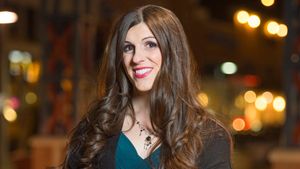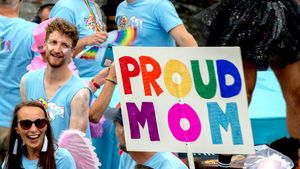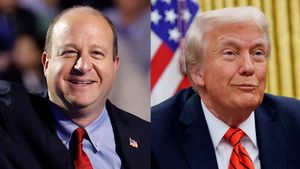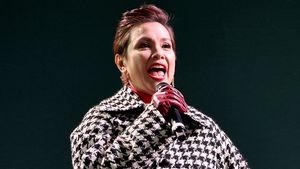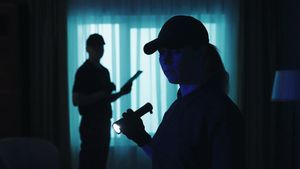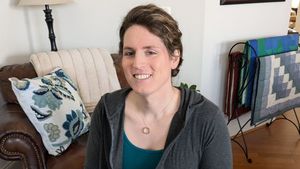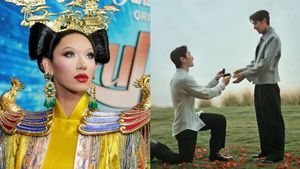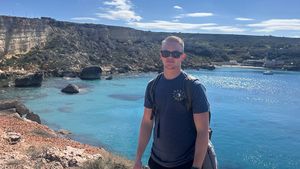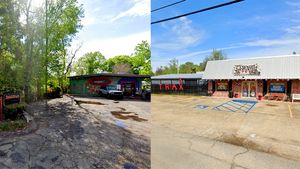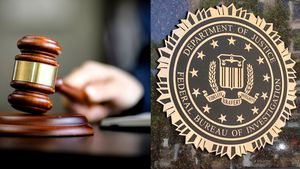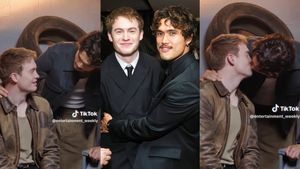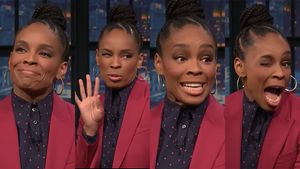While all of Los Angeles and many other cities in California and across the country are singularly focused at the moment on the injustice of the passage of Proposition 8 -- and rightly so -- I thought perhaps this would be a good opportunity to take a break from the protests, rest our weary minds and hearts, and take a look at what the gay and lesbian community is like in another part of the world -- Paris, France.
When I arrived in Paris nearly three months ago, I envisioned a semester that would be spent cavorting with beautiful French women, sipping cocktails at elegant Parisian bars and rubbing elbows with whomever the French consider to be their gay idols. After all, this is “Gay Pareee,” right? In my terribly American, ethnocentric point of view, I was essentially expecting Paris to be the European version of West Hollywood, the city I love and call home. I was forgetting, or simply unaware, that gay culture is different in different places -- and while we share some essentials in common, like a tendency to imitate Kate Moennig’s haircut, for one -- our worldview, our politics and our status in our respective societies varies from one coast, one country and one continent to the next.
I sat down this week with Parisian lesbian blogger, Leslie MacArthur -- a blogging pseudonym -- to get the scoop on this French city and this French gay community and these French women. Turns out I had been looking in all the wrong places. Whereas I have found gay and lesbian culture in the US, and especially in Los Angeles, to be visible and easily accessible, gay life in France is apparently significantly more underlying.
The most obvious places, the places you may find online or in gay travel books, are not necessarily the best places to go. My first jaunts into the “gayborhood” of Paris, “le Marais,” were pathetically unsuccessful and ended in a variety of unappealing scenarios. Most recently, I had to have my best gay boyfriend resort to telling a few particularly aggressive, drunk French lesbians that he was my real boyfriend, simply to get them to stop groping me and trying to lick my face. Where was the sophistication? Where was the glamour? I was beginning to wonder.
I watched MacArthur wince and groan as I listed the litany of gay dive-bars I have been to in the Marais.
“The social scene here is all about the parties,” MacArthur revealed --in what was, by the way, the most perfect English I have ever heard spoken by a French person.
Parties promoted by various associations -- one of which MacArthur is involved in and is called “Pop in Gays” -- host live music and club-atmosphere parties for the lesbian community on a regular basis. I accompanied MacArthur to one such party -- a bi-weekly event called Barbieturix -- on Friday night, two days after our original meeting, and found myself packed into a lively crowd of women and experiencing a better social scene than any I have found on my own since arriving in Paris.
A live band, strobe lights, a full bar manned by some very attractive bartenders in beaters and countless female couples and singles packed the fairly large venue -- for those who have been to the Knitting Factory in LA, the club looked very much like that. MacArthur’s friends were very welcoming and the group of us conducted a conversation --which often had to be shouted above the loud music-- in “Franglais” (French and English mixed) throughout the evening.

With everything that has been going on in California this week, not to mention the injustices in Florida, Arkansas and Arizona, I was anxious to get a French lesbian political perspective from MacArthur during our meeting and from her friends during our night out as well. MacArthur explained that the LGBT community in France does not have quite the same sense of “community” and activism that exists in the United States. While some gays and lesbians are politically active, certainly, there doesn’t seem to be a real “gay movement” in France the way there is in the United States.
With that in mind, I was delighted that before I ever even broached the topic of politics myself on Friday night, one of MacArthur’s friends approached me and asked me to explain what the situation was with the amendment that was passed in California. I explained Proposition 8 and its implications and MacArthur’s friends shook their heads in shared frustration and then explained to me about current laws in France concerning LGBT individuals and couples.
more on next page...
\\\
(continued)
In terms of the question of gay marriage, marriage is not legal in France for same-sex couples. In fact, I was shocked to discover, it doesn’t even seem to be much of a conversation or debate. There is a system in place called PACS -- Pacte Civil de Solidarité -- that allows a civil union between same-sex couples and grants those couples many of the rights and benefits associated with marriage, and as a result, apparently, many gay couples have been satisfied to have a PACS as recognition of their union. However, individuals who are part of a PACS are still considered legally “single,” and the contract has no bearing on parental rights or adoption.
Currently, the biggest conversation and debate going on in France for members of the LGBT community is the question of adoption. As of now, adoption by same-sex couples is illegal in France. A single individual may adopt a child, but many members of the gay community feel that even as a single gay person they are discriminated against in the adoption process. Earlier this year, a film came out -- wide-release, not independent-- called “Comme les Autres” (Like the Others), featuring the story of a gay French man who ends his relationship with his partner and embarks on a frustrating though somewhat comical journey alone towards becoming a parent. It was an excellent film and there was some debate in French newspapers around the week of its release over whether the film was simply a story or if it was trying to make a political statement. I saw the film myself the week it came out --ha, no pun intended-- and, in my opinion, it was without a doubt making a political statement.
Both gay marriage and gay adoption are strongly opposed by the current President of France, Nicolas Sarkozy -- who is lucky enough to be married to the absolutely stunning, drop-dead gorgeous French singer and former model, Carla Bruni -- a fact that is both frustrating and discouraging to the LGBT community in France who often feel they have few influential allies. When asked about political leaders who are in favor of gay rights or who are gay themselves, MacArthur immediately brought up the name of the mayor of Paris, Bertrand Delanoë, who is openly gay.
Delanoë is one of the first well-known politicians in France to “come out,” which he did publicly in 1998, three years before being elected mayor of Paris. Other than publicly coming out though, Delanoë is not active in the LGBT community. MacArthur mentioned that he has participated in the Gay Pride Parade -- which, like in LA and New York and many other US cities, is a huge event in Paris -- but that in general he does not speak about the topic or get involved in LGBT political issues.
We put a lot of pressure on our gay politicians and gay celebrities to come out and act as role models for the gay community in the United States. In France, sexuality -- straight or gay -- is considered much more private and is simply not talked about or gossiped about in the same way. MacArthur and I tossed around the idea of which cultural attitude is better for the community, and we really couldn’t decide.
On one hand, not focusing on sexuality sends the message that sexuality is not that big of a deal and that people can be free to be themselves without being surrounded by gossip and scandal. That is certainly a good thing. On the other hand, the French gay community does not have nearly the number of gay “idols” we have in the United States. In fact, when asked, MacArthur could name only two “out” French lesbians: Amélie Mauresmo ---tennis player...of course -- and the comedian Muriel Robin. Other than those two women, it seems that French lesbians would mostly add American lesbian celebrities to their personal “top ten” lists. The L Word is big here, as are all of the gay movies we enjoy back in the States, but France is notably lacking its own LGBT representation.
So, I must say, while Paris may have a social scene and may have some very cool lesbians hiding in its underground network of parties and events, I am pretty proud to be an American lesbian. In the United States I am part of an ongoing political movement, a consistent conversation that will change the hearts and minds of people across our country until LGBT people are fully equal.
When I returned home at 3:30am after my night out with MacArthur and her friends, I opened my laptop to read the cover stories of the LA Times which featured the protests and the rallies around Proposition 8. And I was proud of my community. And now that you have had your dose of French culture, carry on, continue to make me proud. When I return in January, I will be right there in the streets with you.
























































![Paulie Calafiore dishes on his steamy thirst traps: 'Everybody wants to see [me] half-naked'](https://www.out.com/media-library/image.jpg?id=59778323&width=300)
